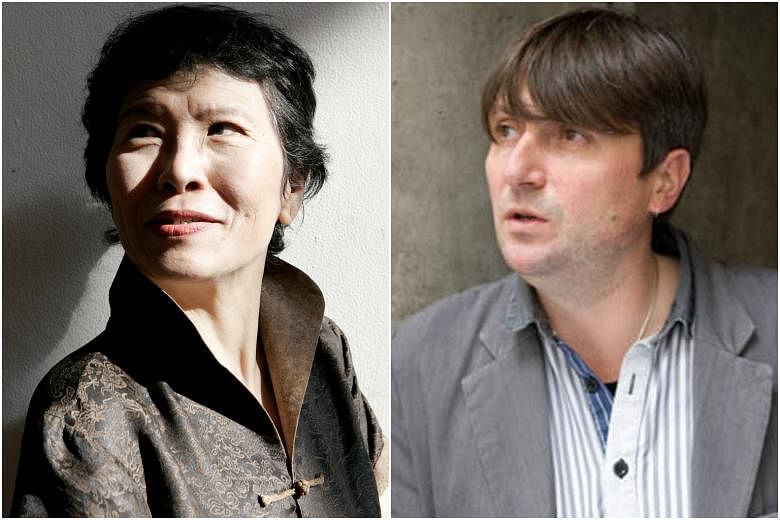SINGAPORE - Esteemed writers from around the globe tackled the state of the world and where they belong in it in two panels at the Singapore Writers Festival on Saturday (Nov 10).
"Poets are prophets no one listens to," said Malaysia-born American poet Shirley Geok-lin Lim, who read out bleak poems she had written in the wake of United States President Donald Trump's election in 2016.
At the lecture Across The Universe: Three Poets Address The State Of The World, she and British poet Simon Armitage expressed their fears of impending environmental disaster. The third poet, American John Yau, was not present due to a flight delay.
Lim, 74, a retired professor at the University of California, Santa Barbara, said that she always tells her students to "think globally and act locally", trying to effect real, immediate change around them.
Armitage, 55, the Oxford Professor of Poetry, read out poems including Last Snowman, which is about climate change.
In another panel, Belonging Somewhere And Nowhere, he spoke of his time as a probation officer in Wakefield Prison and recited a poem about seeing the serial killer Robert Maudsley imprisoned in a solitary "glass cage", where he remains today.
"In all the life I'd lived in between, he was still there in the same space. I suppose I'm trying to address the idea of belonging that isn't chosen, that you are assigned or allocated, the belonging of 'get back where you belong'."
His fellow panellists, India-born American novelist Kiran Desai, 47, and Singaporean author Meira Chand, who is of Swiss-Indian parentage, spoke of their fragmented sense of belonging as immigrants.
"I wish I could have a sense of belonging thrust upon me, but sadly I have only ever belonged to myself," said Chand, who is in her 70s.
She sets her novels, known for their historical breadth, in the places she has lived, which she says is her way of "trying to find my relevance to these places I am irrelevant to".
Desai, who won the Man Booker Prize in 2006 for her second novel The Inheritance Of Loss, said: "It's interesting being an Indian immigrant writer writing in English, because there's so much conversation and anger about that in India.
"There is a feeling that people like myself have an unfair advantage of representation and yet we are so curbed by our experience that we have no right to that representation.
"Similarly, I have the feeling of being an impostor in the States. But I know if I began to think like that, I wouldn't write at all."
The Internet has made the world of today more inter-connected, but several of the writers said they disapprove of it. Desai said she hates social media and the way publishers pressure writers to use it to "brand" themselves.
Armitage described the Internet as an "utter catastrophe for humanity", as it magnifies narcissism and affects the concentration - and therefore the quality of work - of younger generations of poets.
Lim, while not active on social media, remained positive about how the Internet can bring young writers together. "I was always a loner, and I envy them this community. I don't try to put down somebody who didn't do what I did. More power to them."
The 21st edition of the annual festival, which is organised by the National Arts Council, runs from Nov 2 to Nov 11.


